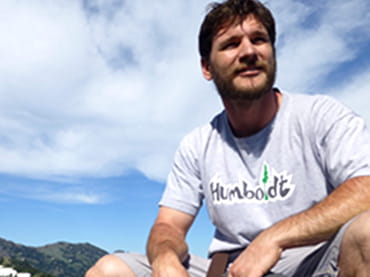In his own words, John Jaso details his ordeal with concussions. He sought help from Micky Collins, PhD, and the team at the UPMC Sports Medicine Concussion Program.
The Challenge: Many Foul Tips to the Mask
I've had two significant concussions in my baseball career, ending my seasons in both 2013 and 2014. Both times I was catching and repeatedly caught foul tips into my mask.
Right after the foul tips hit me, I started having symptoms quickly. My focus was leaving, and fogginess was setting in.
I took a minute or so out on the mound talking to my pitcher, hoping my head would clear.
I returned to squatting behind the plate to await the pitch. When I looked up at the pitcher to read the ball coming out of hand, I couldn't zero in on it.
My eyes wouldn't focus, and instead were seeing the entire picture all at once. It was almost like when you blur your eyes trying to see a 3D image pop out of one of those pictures.
While I was catching the next pitches, I felt as if I was catching them using my peripherals. I was also dealing with nausea. The squatting down/standing up routine of a catcher was causing me to feel seasick.
Other symptoms of my concussions were irritability toward noise and lights.
Also, my sleep patterns changed. I couldn't fall asleep. I'd wake up too early. I was running on about four hours of asleep per night for about a week.
"Having someone like Dr. Collins walk me through it so I could understand what I was feeling definitely helped." — John
John's Path to the UPMC Sports Medicine Concussion Program
All these things would contribute to what Dr. Collins diagnosed as vestibular migraines. They would pop up with too much exposure to any of these irritants.
When I first got concussed, I didn't think there was any real treatment program out there. I thought a concussion was just a concussion. I didn't know there could be extra diagnoses beyond that, like the migraines.
The concussion team at UPMC zeroed in on what part(s) of my brain the concussions had impacted. Doing so helped them come up with a rehab program for me, which surprised me. I thought all I needed to do was sit in a dark room.
The Solution: Retraining the Vestibular System
My treatment involved a slow progression in retraining my vestibular system. I did different drills and used a computer program to give my eyes a workout.
Soon my eyes were able to quickly focus on things again. And eventually, it was like hitting the reset button. My vision and focus were back where they had been.
To help me sleep with the migraines, Dr. Collins suggested an extended release melatonin. That helped a lot. My sleep patterns began to normalize.
We also needed to heighten the threshold of my migraines, so we established a routine to expose myself to light and noise. I would back off as I felt the symptoms creep in — before getting to the point of no return.
The point of no return was when my migraine would stick with me until I woke up the next morning. It's not fun.
Repeatedly exposing myself to those irritants, and then retreating, let me build up my tolerance to them without getting a migraine. The knowledge the UPMC concussion team provided me about this was just as golden as the exercises that came along with it.
The Results: Recovery and Understanding
Going through a concussion is never a fun thing.
Having someone like Dr. Collins walk me through it so I could understand what I was feeling definitely helped. I was able to relax and deal with my emotions, instead of lying there awake and stressing about it.
It took me about two months to recover from my first concussion and about five months for my second.
Learning about how concussions work — both chemically and mentally — was very important for me. It helped me deal with how I was feeling.
When something impacts me personally, I want to know everything there is to know about whatever it is.
With all the attention the media and Hollywood are giving concussions, some people who have sustained concussions might be freaking out.
My advice to them would be to find professionals trained in concussions, like Dr. Collins and the team at UPMC. They put me on a rehab program that allowed me to start enjoying life again.
Just knowing and hearing an educated diagnosis clears your mind and eases your fears. It got me on the path of understanding and recovery at a much quicker pace.
If you feel like you may be experiencing concussion symptoms, don't wait around. Find help. Get an expert opinion and be honest about how you are feeling.
















